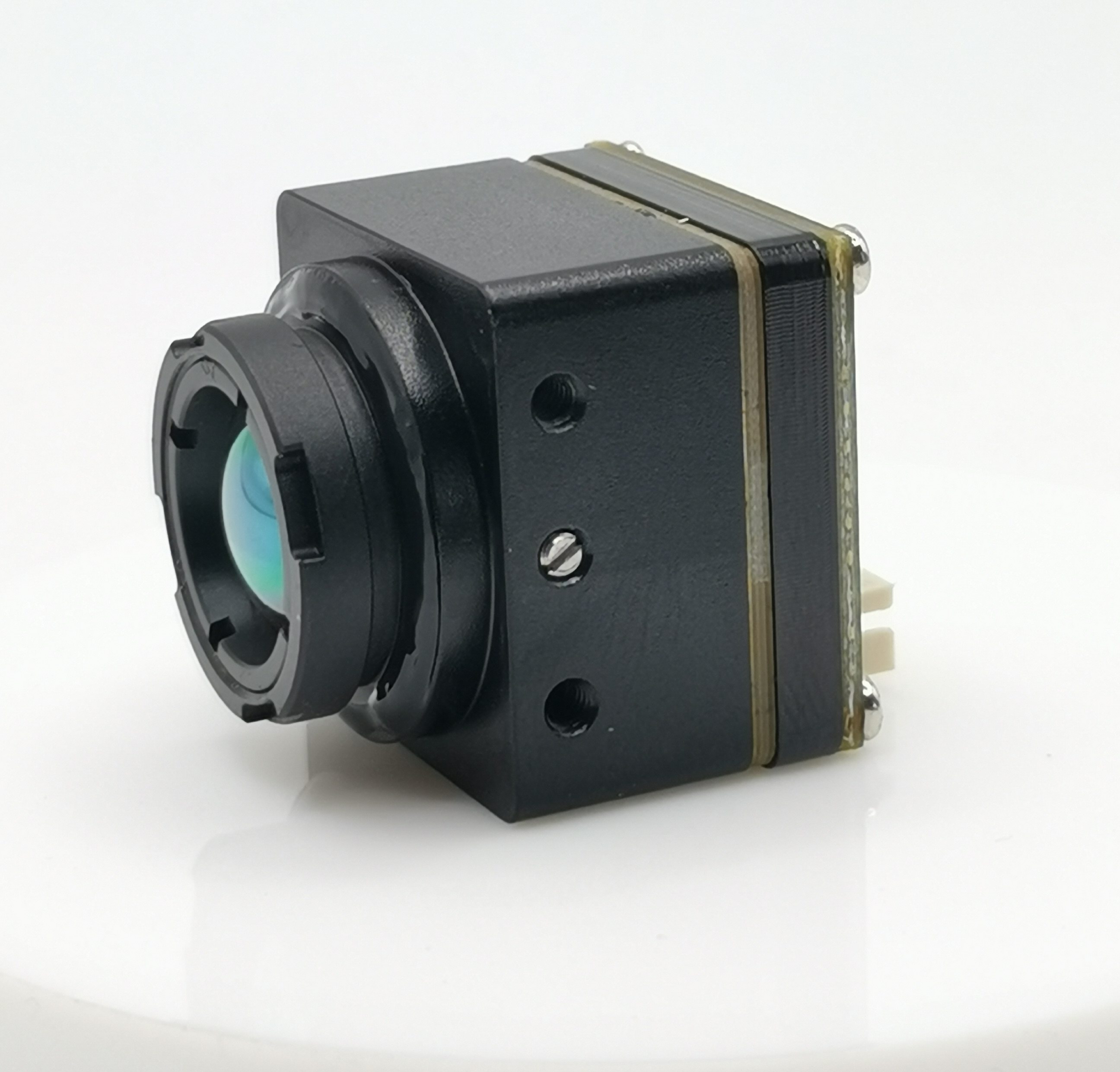Low Cost Thermal Camera for Drone vs iSun Analog FPV Thermal Camera: Which is Better for FPV Applications?

Exploring the World of FPV Thermal Cameras
When delving into the realm of FPV thermal cameras, it's essential to grasp the underlying technology and the pivotal role they play in drone operations.
Understanding FPV Thermal Camera Technology
What is FPV?
FPV, or First Person View, refers to the immersive experience of controlling a drone as if you were onboard. It involves live video transmission from the drone's perspective to a display, typically through goggles or a monitor.
The Role of Thermal Cameras in FPV
FPV Thermal Cameras are specially designed to capture thermal imagery, enabling operators to visualize heat signatures and temperature variations in their surroundings. These cameras provide crucial data that enhances situational awareness during flight.
The Importance of Thermal Imaging for Drones
Applications of Thermal Imaging
Thermal imaging holds immense value across various industries, including search and rescue operations, wildlife monitoring, infrastructure inspections, and agricultural assessments. In each scenario, FPV thermal cameras offer unparalleled visibility in low-light conditions and aid in detecting anomalies that may be imperceptible with traditional cameras.
Benefits of Using Thermal Cameras in Drones
The integration of thermal cameras empowers drones with the ability to detect heat sources, identify hotspots, and conduct efficient aerial surveys. This capability significantly expands the scope of drone applications by providing invaluable insights into temperature differentials and thermal patterns within the environment.
Low Cost Thermal Cameras for Drones: A Closer Look
As the demand for thermal imaging in drone operations continues to grow, the availability of low cost thermal cameras presents an attractive option for enthusiasts and professionals alike. Let's delve into the features and considerations associated with these accessible thermal imaging solutions.
Features of Low Cost Thermal Cameras for Drone
Image Quality and Resolution
When considering low cost thermal cameras for drones, it's essential to evaluate their image quality and resolution capabilities. While these cameras may offer lower resolution compared to their high-end counterparts, they still provide sufficient clarity to detect heat differentials and hotspots within the environment. The imagery produced by these cameras enables operators to identify objects or subjects based on their thermal signatures, enhancing overall situational awareness during flight.
Temperature Range and Sensitivity
Despite being budget-friendly, low cost thermal cameras for drones often encompass a respectable temperature range and sensitivity. These cameras can effectively capture temperature differentials within a specific range, allowing operators to discern variations in heat signatures across diverse surfaces or objects. The sensitivity of these cameras contributes to their ability to detect subtle temperature variations, making them suitable for a wide array of applications such as wildlife monitoring, building inspections, and search and rescue missions.
Pros and Cons of Low Cost Thermal Cameras
Affordability and Accessibility
One of the primary advantages of opting for low cost thermal cameras is their affordability and accessibility. These cameras provide an entry point into the realm of thermal imaging without imposing substantial financial constraints on drone enthusiasts or professionals. Their cost-effective nature makes them an appealing choice for individuals seeking to integrate thermal capabilities into their drone operations without investing in high-end equipment.
Limitations and Considerations
While low cost thermal cameras offer compelling benefits, it's important to acknowledge certain limitations and considerations associated with these budget-friendly options. They may exhibit reduced battery life, limited software functionalities, or narrower field-of-view compared to premium models. Additionally, some low-cost options may have constraints in terms of long-term durability or resistance to environmental factors such as water or dust ingress.
The iSun Analog FPV Thermal Camera: Features and Benefits
As drone technology continues to advance, the iSun analog FPV thermal camera stands out for its array of advanced features and benefits that cater to the evolving needs of FPV enthusiasts and professionals.
Advanced Features of the iSun Analog FPV Thermal Camera
Higher Resolution and Image Quality
The iSun analog FPV thermal camera distinguishes itself with higher resolution capabilities, delivering sharper and more detailed thermal imagery. With enhanced image quality, operators can discern finer temperature differentials and heat signatures with remarkable clarity, providing a comprehensive view of their surroundings during flight.
Adjustable Temperature Ranges and Color Palettes
This innovative thermal camera offers adjustable temperature ranges, allowing users to customize the focus of their thermal imaging based on specific environmental conditions. Additionally, it provides multiple color palettes, enabling operators to optimize visual representation according to their preferences or situational requirements. These customizable features enhance flexibility and precision in capturing thermal data during FPV operations.
Why Choose the iSun Analog FPV Thermal Camera?
Enhanced Imaging Capabilities for FPV
The iSun analog FPV thermal camera is designed to elevate the imaging capabilities of drones for FPV applications. Its advanced features empower operators with unparalleled visibility into heat signatures and temperature differentials, enabling them to make informed decisions during flight. The heightened imaging capabilities contribute to enhanced situational awareness, making it an invaluable tool for various industries such as search and rescue, surveillance, and infrastructure inspections.
Comparing to Low Cost Alternatives
When comparing the iSun analog FPV thermal camera to low cost alternatives, its superior resolution, image quality, and customizable features set it apart as a premium choice for discerning drone operators. While low cost options provide entry-level access to thermal imaging, the iSun analog FPV thermal camera offers enhanced performance and flexibility tailored towards professional applications where precision and detail are paramount.
Making the Right Choice for FPV Applications
Comparing Low Cost Thermal Cameras and the iSun Analog FPV Thermal Camera
When comparing FPV thermal cameras designed for drones, it's essential to discern the key differences and similarities that influence their suitability for diverse applications. The iSun analog FPV thermal camera distinguishes itself with advanced features such as higher resolution, enhanced image quality, and customizable temperature ranges and color palettes. On the other hand, low cost thermal cameras offer affordability and accessibility, albeit with potential limitations in image clarity and customization options.
While both options facilitate thermal imaging during drone operations, the choice between them hinges on specific requirements related to image precision, environmental adaptability, and budget considerations. Understanding these distinctions is pivotal in making an informed decision that aligns with your FPV application needs.
Key Differences and Similarities
The primary difference lies in the imaging capabilities, where the iSun analog FPV thermal camera excels in delivering sharper and more detailed thermal imagery compared to low cost alternatives. Additionally, its adjustable temperature ranges and multiple color palettes provide enhanced flexibility in capturing thermal data tailored to varying environmental conditions. Conversely, low cost options prioritize affordability but may compromise on image quality and customization features.
However, both types of cameras share a common goal of enhancing situational awareness through thermal imaging. They enable operators to detect heat sources, identify anomalies, and conduct efficient aerial surveys. Whether opting for a premium or budget-friendly option depends on the specific demands of your FPV applications.
Which Camera Suits Your Needs?
The decision ultimately boils down to evaluating your priorities regarding image precision, adaptability to environmental factors, and financial constraints. If precision and advanced imaging capabilities are paramount for your FPV endeavors, the iSun analog FPV thermal camera emerges as a compelling choice. Conversely, if accessibility and basic thermal imaging suffice for your applications without stringent demands on image detail or customization options, a low cost alternative may suit your needs effectively.
Tips for Choosing the Right Thermal Camera for Your Drone
Assessing Your FPV Application Needs
Before making a decision, assess the specific requirements of your FPV applications. Consider factors such as desired image clarity, environmental conditions where the drone will operate, and the level of customization needed for capturing thermal data effectively.
Considering Budget and Performance
Balance budget considerations with performance expectations when selecting a thermal camera for your drone. Evaluate whether advanced imaging capabilities are indispensable or if basic thermal imaging suffices for your operational needs while staying within budget constraints.
Conclusion: Finding the Best Fit for Your FPV Adventures
In conclusion...
See Also
Comparing Features of Top Drone Thermal Cameras with iSun Analog FPV
In-Depth Comparison: Budget Drones with Thermal Cameras vs. iSun Analog FPV
Drone Thermal Camera Face-Off: Analog FPV vs. iSun FPV
Thermal Imaging Showdown: Drone Cameras vs. iSun Analog FPV
Revealing the iSun FPV Difference: Analog FPV vs. Drone Thermal Camera
Contact Us: Ms. Coco Huang
E-mail: sales@iasun.cn
WhatsApp/Wechat: +86 13510421923

